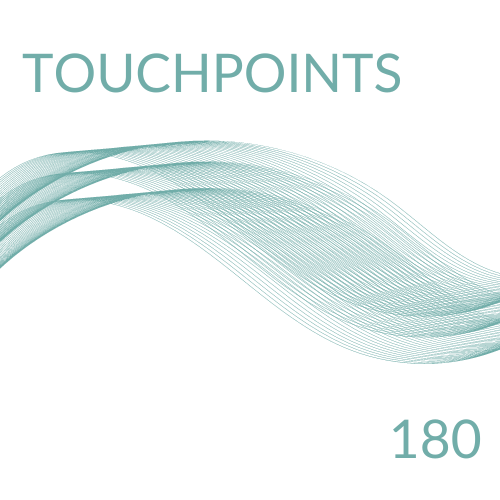
Jenni paused to try to remember what she was doing. Coffee. That was it. Her mind was so foggy, as if her head was stuffed with peanut butter. Or styrofoam. Uggghhhh… she thought. Maybe coffee will help. But truth be told, she doubted it would help enough. She was tempted to sit down and abandon the coffee idea… but she pressed on. While she sipped the steaming beverage from her mug, she thought about the hopelessness she felt, and the futility. The irritability. And the agitation. How she wished she could remain calm and serene. That she could move through the routine of each day unruffled. But little things made her explode at times, then hate herself for it. Jenni caught her reflection as she walked past the mirror in the entry hall. Ugghhh, she thought again. Jenni hardly recognized herself anymore. She’d really gained a lot of weight these last 7 months. It was so discouraging. And…it was weird…she didn’t feel like she ate that much. How had she gained so much weight? She’d heard about sugar addiction, and even mental health exercises that might help, but didn’t believe any kind of addiction applied to her.
Chasing Energy and Relief in all the Wrong Places

And why did she feel so draggy, so run down, without stamina? Why so hungry when she’d already eaten? The gnawing craving for pizza, potato chips and dips, festive coffee drinks and soda, plagued her. She finally quit fighting it, drove the car to her fav caffeine drive-through, and ordered a venti coffee loaded with syrups and topped with whipped cream. Plus a croissant sandwich. And a frosted cookie.
There. That should hit the spot.
She wolfed down the sandwich, sipped on the coffee voraciously, and finally took big bites out of the beautiful, artistically decorated cookie. She was beginning to feel some relief.
For now, she felt less irritable, almost soothed. So she headed home after a quick stop at the convenience store to grab a bag of potato chips and some dip, a frozen pizza for later, along with some Rocky Road ice cream. And, of course, popcorn.

Each time she began to feel down again, she brainstormed and treated herself to a carbohydrate-rich delight. Cookies, frosting, frothy coffee, chips, dip, ice cream. It was amazing how much better she felt as she bit into them. However, by the third bite or so, the pleasure faded. Nevertheless, she finished eating them, anyway.
Over and over, every day. Desperately seeking relief via food pleasure.
By the time she finished the treat she’d been devouring, the pleasure was gone, and her emotions sank, along with her energy.
One day, she checked her email, and there was one seeking applicants for an “overeaters” club. While that certainly didn’t apply to her( or so she thought), she wondered if making friends at such a club might allow her to meet people who had ideas about her low energy, irritability, agitation, and feelings of futility – that seemed to be her constant companions.

So she read the entire email and found some links at the bottom. One of them caught her attention.
Your dysfunctional metabolism may be causing your depression which may be caused by your dysfunctional metabolism. What??
What’s metabolism got to do with depression? She clicked on the link out of pure curiosity, and discovered it was an article that connected depression, anxiety, agitation, and feelings of futility with your metabolism, and how you can treat those symptoms with certain types of foods, exercise and movement, social relationships, and maybe even meditation.
It seemed to imply that craving and eating sugary foods could be a sign of sugar addiction, and that could cause mental health symptoms. Shocking...

She read on.
What is this? Some sort of hype…? She wondered. Some sort of woo woo group?
As Jenni kept reading, she learned that current neuropsychiatric research and practice provided evidence that the kinds of symptoms that were plaguing her were connected to metabolic dysfunction.
Inflammation Can Cause Psychiatric Symptoms
She learned that metabolic disease often included inflammation, and inflammation is often involved in psychiatric symptoms. Symptoms of depression, anxiety, rage, irritability, agitation… these are often associated with inflammation. The worse the inflammation, the more intense the symptoms.

And this inflammation can be linked with ultra processed foods… and sugar. She read that when your metabolism is out of whack, you tend to crave sugar and carbohydrate-heavy foods.
Because – and this was a surprise – sugar is actually not needed for your health or survival. Who knew?? That, in fact, your natural digestion takes healthy foods like protein and turns them into the glucose (biological sugar) your body needs. So when you consume refined sugar – the white stuff – it’s always in excess of what you need. And it’s addictive. That’s why they call it sugar addiction, and it has consequences to your mental health.
Feeding the Monster: Sugar Addiction and Mental Health

Unfortunately, when you eat it, you want more. It triggers your pleasure center in your brain, which makes you want even more. But the more of it you eat, the less pleasure you experience…so you want to eat more to experience that pleasure again… And more. And then… well, after you stop eating it, you can start to feel withdrawals, so you want more still to make that feeling go away and the pleasure to return.
The trouble is, eating sugar and other ultra processed foods like hot dogs, potato chips, frozen pizza, candy, cake, donuts, and ice cream, feeds the sugar addiction, and you don’t get the nutrients your brain needs to function properly. These foods feed the inflammation. And when your brain is inflamed, it doesn’t get sore like an inflamed throat gets sore, or swell like an inflamed sprained ankle.
Instead, it malfunctions with symptoms like agitation, depression, irritability, and anxiety… manic symptoms. Even psychosis. Maybe your moods change rapidly. Maybe your memory isn’t so good anymore. Or maybe you develop an eating disorder. Those brain cells can’t function like they’re supposed to.
And to get better, it’s vital that you eat very small amounts of carbohydrates.

We’ve all done it—many of us grew up eating ultra processed foods, full of unhealthy seed oils, high sugar and lots of carbs. But feeding you body and brain that way over time means your metabolism suffers, and your become malnourished because your food is not nourishing. Even though you may appear obese on the outside, inside your cells are starving. They need the vitamins and minerals you get from whole foods like vegetables, omega 3 fatty acids from fatty fish like salmon and avocados, healthy and nutrient-dense animal fats, flavonoids from onions, lettuce, tomatoes, cheese… These are foods that feed your cells. Eating these foods, and removing ultra processed foods from your diet, as well as excessive carbohydrates, is using food as medicine. In fact, the right food IS medicine.
At the bottom of the page was listed a doctor whose practice focused on Metabolic Psychiatry. It’s metabolic medicine geared specifically to restore mental health.
Jenni slept on it. Then, in the morning as her sugar cravings began to crowd in again, she called that doctor and made an appointment.
The doctor discussed metabolic dysfunction, how damaging too much carbohydrates and refined sugar can be, and explained the approach she uses, a wrap-around program with all kinds of opportunities to build knowledge, support and success.
Jenni learned more about the symptoms that had plagued her, about the sugar addiction and how it was sabotaging her body and her brain. And her emotional stability!

Touchpoints 180™
She was excited by the sophisticated work-up, the digital tools, the in-person connections and the personalization of it all. This wasn’t a one- size-fits-all handout, or a conveyor belt approach with nameless people behind a great logo. And starting wasn’t nearly as hard as she had feared. The rich and healthy foods that were prescribed for her were so satisfying that her cravings for sugar started to slip away.
Although there were moments over the coming weeks when she wistfully thought about those foods she was no longer eating, something had changed. She didn’t want them anymore, didn’t go out driving around to find them, and she realized she wasn’t eating something just to eat it.

Her brain felt different. Her thinking was different.
So this is what it’s like to take food as medicine. She liked it!
It Wasn’t Long Before She Felt the Improvement
Most importantly, she was feeling better and better. Feeling more upbeat, less reactive, and more and more with a sense of just…well-being.
And it just kept improving… Meanwhile, in the next several weeks she noticed her pants waist fitting more loosely… then her top began to hang from her shoulders. Her belly was shrinking! She started wearing clothes she used to wear that were a size smaller; then in 3 months, 2 sizes smaller. Wow oh wow!

From what she’d learned and more importantly, what she saw and felt, her body was metabolizing her fat, and she was losing weight without feeling hungry or tired. What a reward!
With all she’d learned about her metabolism and her health, she had no intention of returning to her old dysfunctional way of living (and eating). This was easy. She felt content. Less and less volatile. More at peace.
Jenni had found freedom in her body from her sugar addiction, and especially a bright outlook and mental clarity. The symptoms of agitation, futility, and hopelessness all quietly subsided.
She found she had patience when she would have exploded before. Her confidence in her ability to manage her life bloomed.
Are you struggling with your weight… and maybe an unrelenting addiction to sugar?

Do you have symptoms of Type 2 diabetes or other metabolic illness along with psychiatric symptoms?
If you struggle with brain fog, irritability, agitation, hallucinations, depression…and nothing you’ve done has helped, call us. We’re breaking new ground.
Come and join us in using a new and healthy approach, Ketogenic Psychiatry, Touchpoints 180™, and see what evaluation, guidance, and support can do to transform your life, your health, and your joy as you move forward in your best life.

To the restoration of your best self,
